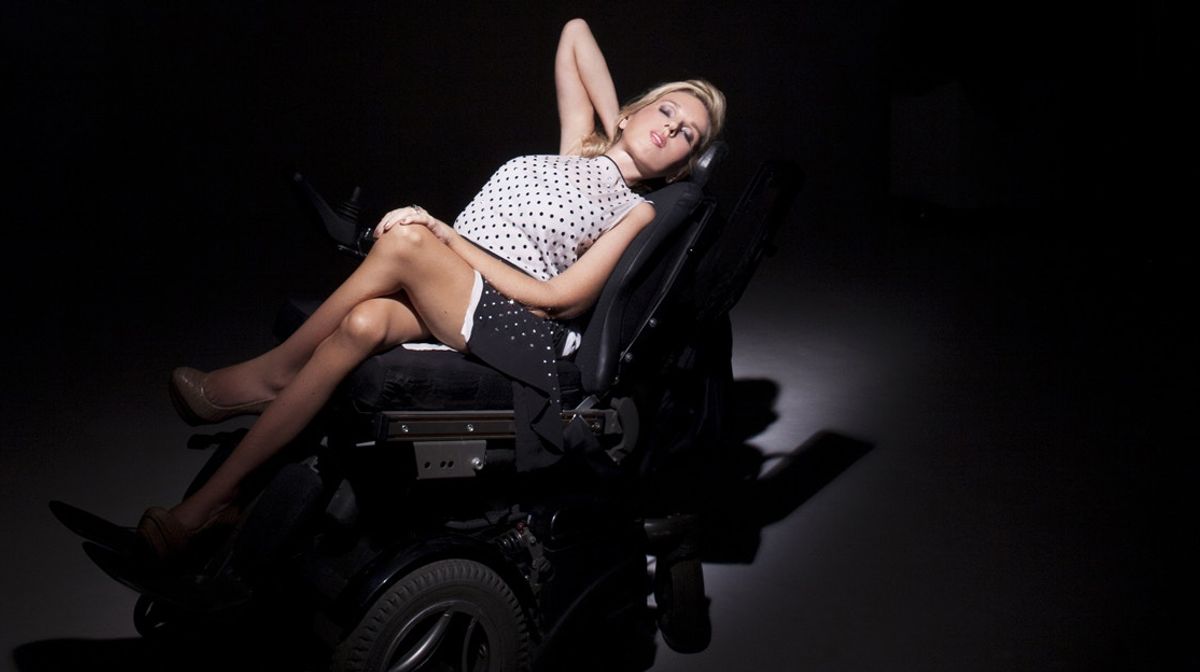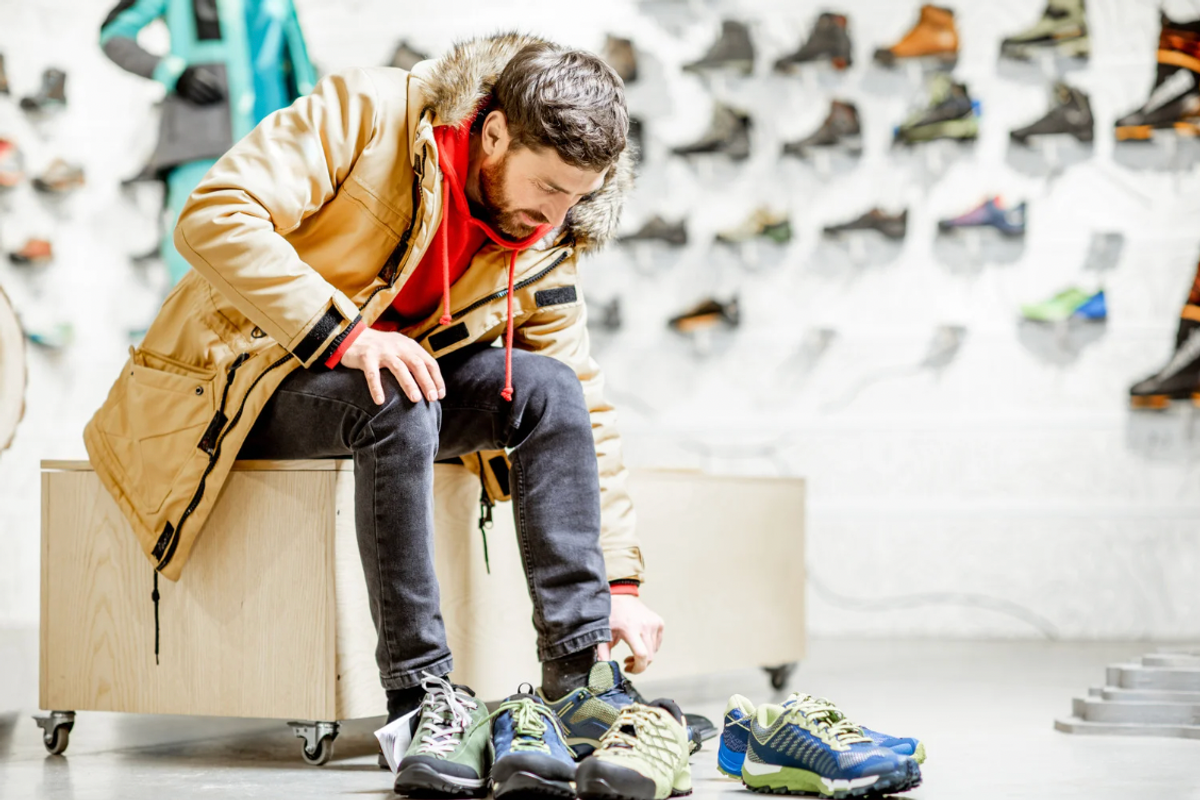A woman with a disability gets real about dating and sex. She's funny and honest.
Her candor is delightful, her message is important, and her jokes are great

Most people are missing out on a huge portion of the dating pool.
"So just recently I went out on a Match.com date, and it was fantastic," begins Dr. Danielle Sheypuk in her TEDx Talk.
If you've ever been on Match.com, that opening line might make you do a double take. How does one get so lucky?
Before you get too jealous, you should know things quickly went downhill two dates later, as most Match.com dates ultimately do. This time, however, the reason may not be something that you've ever experienced.
Intrigued? I was too. Here's the story.

Gorgeous!
Photo from Dr. Sheypuk's Instagram account, used with permission.
She's a licensed clinical psychologist, an advocate, and a model — among other things. She's also been confined to a wheelchair since childhood. And that last fact is what did her recent date in.
Over a romantic Italian dinner on their third date, Sheypuk noticed that he was sitting farther away from her than usual. And then, out of nowhere, he began to ask the following questions:
"I've been thinking, how are you gonna be a mother? How are you gonna do the duties that's gonna be required of you? And even as wife — how ... I'm not sure how this is gonna work."
Used to this line of inquiry, she had the perfect quippy reply: "Well that's simple: I'm just gonna hire someone like every other New Yorker."
But despite her witty answer, he'd already made up his mind. She never heard from him again.
"I tried to convince myself that this was like any other relationship, but deep down I knew the reality. Who wants to date someone in a wheelchair?"
Dr. Sheypuk knows that that single question is evidence of a really serious problem—not just on the dating scene, but in society in general.
Society has factored out an entire group of potential romantic partners: people with disabilities.

Talk about a million-dollar smile.
Photo courtesy of Danielle Sheypuk.
In her words:
"We are completely left out of the dating picture. Society, media included, seems to ignore the fact that we have the same emotional needs and desires as everyone else. Is this injustice born out of the concept of the poster child and his or her duty to induce pity to raise money?
Or maybe it's a conclusion drawn from mainstream porn where we have actors performing, like, gymnastic stunts with the stamina that none of us have of bucking broncos and jackrabbits.”
Um, yes. So much yes. She continues:
"The silent message: The more in shape your body, the better the sex. The unspoken conclusion: If you have a disability, you are too sick to have sex.
The silent message: The more in shape your body, the better the sex. The unspoken conclusion: If you have a disability, you are too sick to have sex.
"Now let's look at the continuum in our society where sexual is measured. On the one hand, we have humans that are the ultimate sex appeal object. So on that end, we have Victoria's Secret models, Playboy centerfolds, people like that.
On the complete opposite end, we have people with physical disabilities. And it seems like the more we deviate from this ultimate sex icon, the more desexualized we become, the more taboo the topic, and the more damaging the consequences.
Now, for most people there are quick fixes, right? We have Hair Club for Men, Botox, Spanx, butt implants. But for people with disabilities, there are no quick fixes. There is no magic pill."
And we are hit hard.”
It's important to note, too, that while someone may not be disabled now, it doesn't mean they will never experience or develop a disability. Due to injuries, illnesses, and chronic conditions, research shows that the chances of becoming disabled are startlingly on the rise.
Watch the rest of Dr. Sheypuk's talk to hear her important insights about what dating and relationships are like when a person has a disability—and how much of society is limiting itself.
This article originally appeared nine years ago.
- 8 simple words to say when someone you love is grieving. ›
- The amazing reason that medals at the Paralympics make a sound when you shake them. ›
- The heartwarming love story of this woman and her quadriplegic husband is a must-read. ›
- Mother explains why she says virginity doesn't exist - Upworthy ›
- Study shows who's teaching girls about sex when school and parents won't - Upworthy ›
- Amazing video shows 1950s mom of 7 without arms doing it all - Upworthy ›



 Millennial mom struggles to organize her son's room.Image via Canva/fotostorm
Millennial mom struggles to organize her son's room.Image via Canva/fotostorm Boomer grandparents have a video call with grandkids.Image via Canva/Tima Miroshnichenko
Boomer grandparents have a video call with grandkids.Image via Canva/Tima Miroshnichenko

 Worried mother and children during the Great Depression era. Photo by Dorthea Lange via Library of Congress
Worried mother and children during the Great Depression era. Photo by Dorthea Lange via Library of Congress  A mother reflects with her children during the Great Depression. Photo by Dorthea Lange via Library of Congress
A mother reflects with her children during the Great Depression. Photo by Dorthea Lange via Library of Congress  Families on the move suffered enormous hardships during The Great Depression.Photo by Dorthea Lange via Library of Congress
Families on the move suffered enormous hardships during The Great Depression.Photo by Dorthea Lange via Library of Congress
 A couple cooking in the kitchen with a cat sitting on the table beside chopped ingredients.
A couple cooking in the kitchen with a cat sitting on the table beside chopped ingredients.